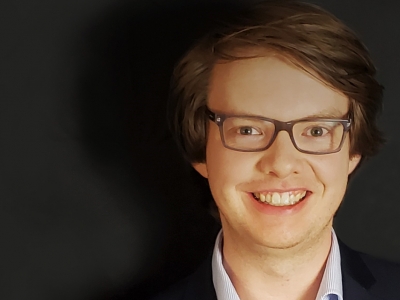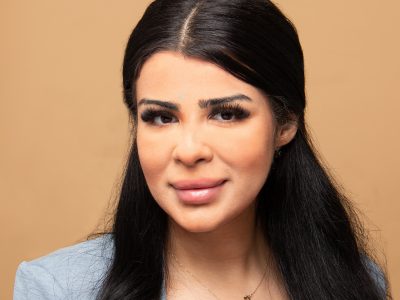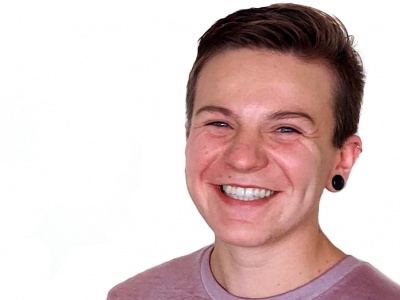This profile was part of the Faculty of Public Affairs’ 75 for the 75th series, which highlighted 75 notable alumni in FPA in honour of Carleton University’s 75th anniversary. These stories were published in 2016 and 2017.
Foreign Correspondent, CBC News
Master of Journalism (‘97)
“Hundreds of unaccompanied minors have made their way to a squalid tent city on the outskirts of Calais, but a partial demolition order for the camp puts the young refugees at risk of falling through the cracks…”
Thus began a news report from CBC foreign correspondent Nahlah Ayed in 2016. She told the story of a 12-year-old Afghan boy, Faisal, who travelled alone to France with his 10-year-old brother in the hope of joining relatives in Britain.
The camp in Calais is one of many Ms. Ayed has visited over the past 20 years as an award-winning international correspondent for CBC and other news organizations. And what struck her above all was its familiarity.
“Refugee camps look the same the world over: mud, garbage everywhere and makeshift tents,” she explains. “What shocked me was to see it in France.”
For the past few years, Ms. Ayed has been immersed in the refugee crisis, reporting from scenes in Austria, Serbia, Germany, Hungary and France. Throughout it all, she’s been able to draw on the knowledge she acquired during her many years living and reporting from the Middle East.
Beginning in late 2002, she lived in Beirut, Cairo, Baghdad and Amman, covering several Middle Eastern conflicts, from the Iraq War to the Arab Spring.
“If you want to understand a region, nothing can replace the day in, day out living, breathing experience,” she explains. “I shopped in the market, cut my hair at the local salon and worked out at the gym. Being there during the peaks and valleys helped explained how things came about.”
What “came about” was the Arab Spring. Ms. Ayed was working from the London bureau when the uprising began in Tunisia in December 2010.
“I called my editor and said, ‘watch Egypt’,” she recalls. “I had seen the protests fail, the brutality of the police, but there was a spark that was going to light a fuse and I could see that.”
Ms. Ayed’s understanding of the region was also aided by her upbringing. When she was six-years-old, her parents moved her family from Winnipeg to a Palestinian refugee camp in Jordan, to expose them to their own Palestinian culture. It was an extreme culture shock, but she emerged fluent in Arabic, which has proven invaluable.
She also credits the skills she acquired in the School of Journalism’s master’s program as supporting her throughout her career.
“Everything I learned there was applicable in one way or another. It was an immersive experience of dreaming, thinking, writing and examining,” recalls Ms. Ayed. “The anecdotes we heard from the professors and (guest speakers) made us want to do this.”
In her 2012 memoir, A Thousand Farewells, Ms. Ayed described how her experience in conflict zones began to take a toll. In one television report, viewers watched as she flinched to the sound of bullets being fired behind her. She was attacked while reporting at a shrine in Baghdad in 2003, and a year later, her apartment was destroyed in a bombing in Beirut.
“The hardest experiences to deal with, funny enough, were the incidents where I escaped relatively unscathed, like the bombing in Beirut,” she told an interviewer. She says she was struck that, in conflicts, “the birds still sang. The sun still came up. The beach umbrellas fluttered in the breeze.”
Ms. Ayed laments the fact that the Beirut news bureau no longer exists—a sign of leaner times in the industry. But she contends that, regardless of the ups and downs of business, foreign journalism will always be relevant.
“There will always be a demand for smart people out there telling good stories, because people want to hear them. They want to understand the world around them.”
Monday, March 28, 2016 in #FPA75, Career Paths, Journalism
Share: Twitter, Facebook



